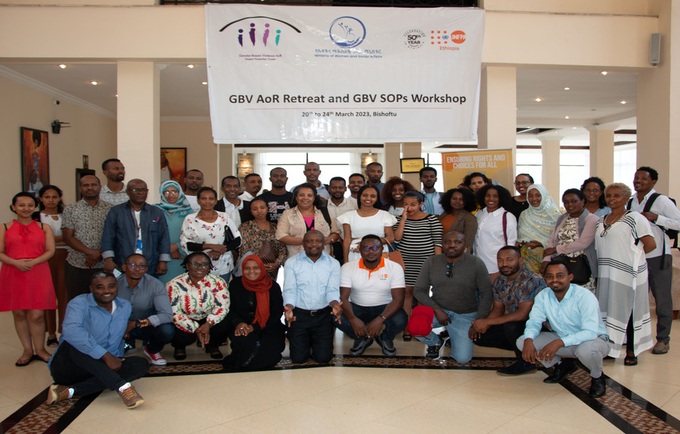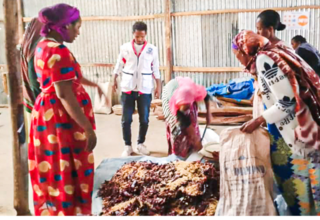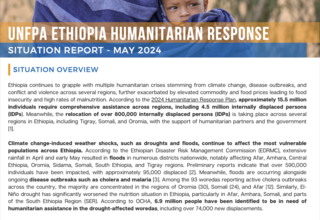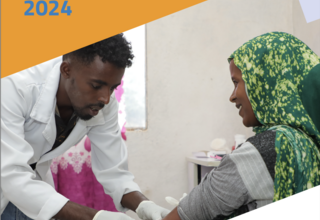BISHOFTU, Oromia - “The retreat was very unique with many practical insights to better understand how indicators can be developed using the minimum standards for GBV response as well as to contextualize our strategies to a particular context, like in my case to the Gambella Region”, says Girum Gebreyesus, Director of the Women Mobilization Unit at Gambella’s Bureau of Women and Social Affairs (BOWSA) after attending the GBV AoR retreat and GBV Standard Operating Procedures (SOP) Workshop in March 2023 in Bishoftu, Oromia Region.
Girum is one of the 59 representatives from local, regional and national partners and stakeholders who participated in the GBV AoR Retreat aiming to strengthen GBV prevention, risk mitigation & response efforts across crisis-affected communities in Ethiopia.
The retreat is part of an effort to scale up and improve the overall technical capacity of gender-based violence partners and stakeholders to provide quality and compassionate care to survivors across affected areas in Ethiopia. Professionals from different local, national and international NGOs, regional bureaus, including the Ministry of Justice and Women and Social Affairs, participated in the workshop supported by Global Affairs Canada.
As part of UNFPA’s leadership and commitment to addressing sexual exploitation and abuse, the training series additionally included sessions on Prevention of Sexual Exploitation and Abuse (PSEA) aiming to better equip professionals to support efforts to mitigate and address sexual exploitation and abuse in humanitarian settings. Thus, the workshop focused on building fundamental skills, providing guidance, and improving the overall inter-agency protocols and operating procedures of national partners responding to the immediate and long-term physical, psychological and mental health needs of survivors of GBV.
Doctor Lealem Bimanu, Desk Head at the Ministry of Women and Social Affairs, and a participant in the retreat, said: “One of the main takeaways of the workshop was how to build synergies among organizations for GBV mainstreaming in development and humanitarian settings and develop a Standard Operating Procedure (SOP) that will drive joint action with a coherent, comprehensive and harmonized approach to preparedness, prevention, risk mitigation and response to GBV and other harmful practices”.
Speaking at the workshop, Liya Wondimu, GBV Specialist in Mercy Corps, further underscored the importance of a national SOP to guide and expand GBV quality and timely service provision and to ensure the short and long-term recovery of affected individuals and communities.
While gender inequalities and GBV are common in non-emergency settings, conflict, displacement and natural disasters can exacerbate GBV due to a breakdown in social systems, lack of law enforcement, and limited access to health facilities. In crisis-affected regions, sexual violence and other gendered harmful practices like early or forced marriage are widely reported with women and girls bearing the burden disproportionally. Gender-based violence impacts women’s health, hampers their ability to participate fully in society, affects their enjoyment of sexual and reproductive health and rights, and is a source of tremendous physical and psychological suffering for both women and their families. Survivors of all forms of GBV deserve quality services for their immediate and long-term physical, psychological and mental health needs, as well as to recover in dignity and safety.
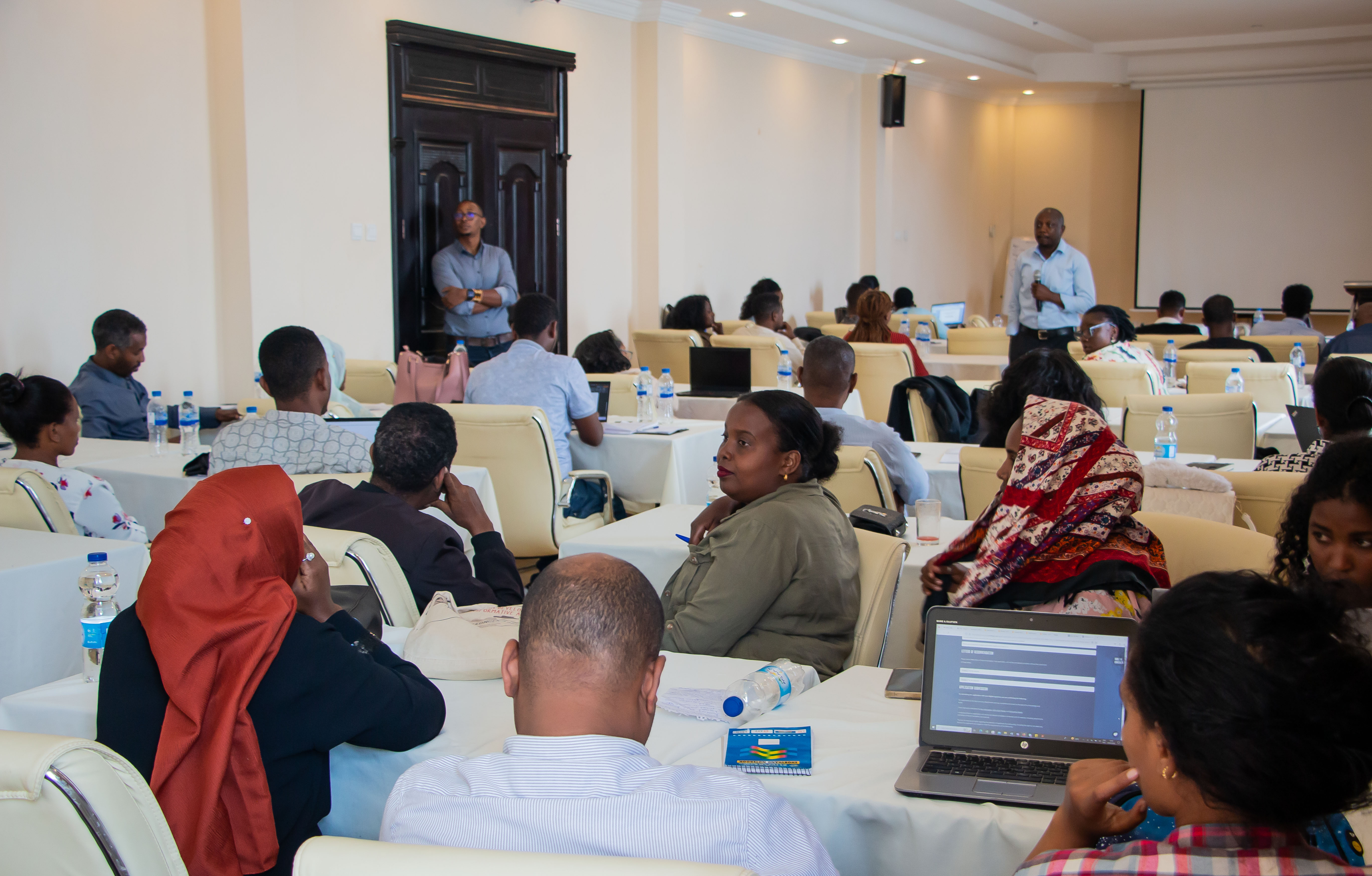
UNFPA Ethiopia Representative, Mr. Koffi Kouame, noted that the retreat reflects the commitment by UNFPA to guide joint transformative action to scale up protection, prevention and access to life-saving services.
“Gaps in service leave many survivors without support, sometimes with fatal consequences. Enhancing collective reach and impact of all GBV Area of Responsibility members is critical not only to prevent and end gender-based violence but to ensure that those affected have access to timely information, support and services they need to survive, heal and recover”.
In 2023, GBV AoR interventions require over $108 million USD to respond to the protection needs of 2.7 million individuals across crisis-affected regions in Ethiopia. To date, only 4% of the appeal has been funded.
